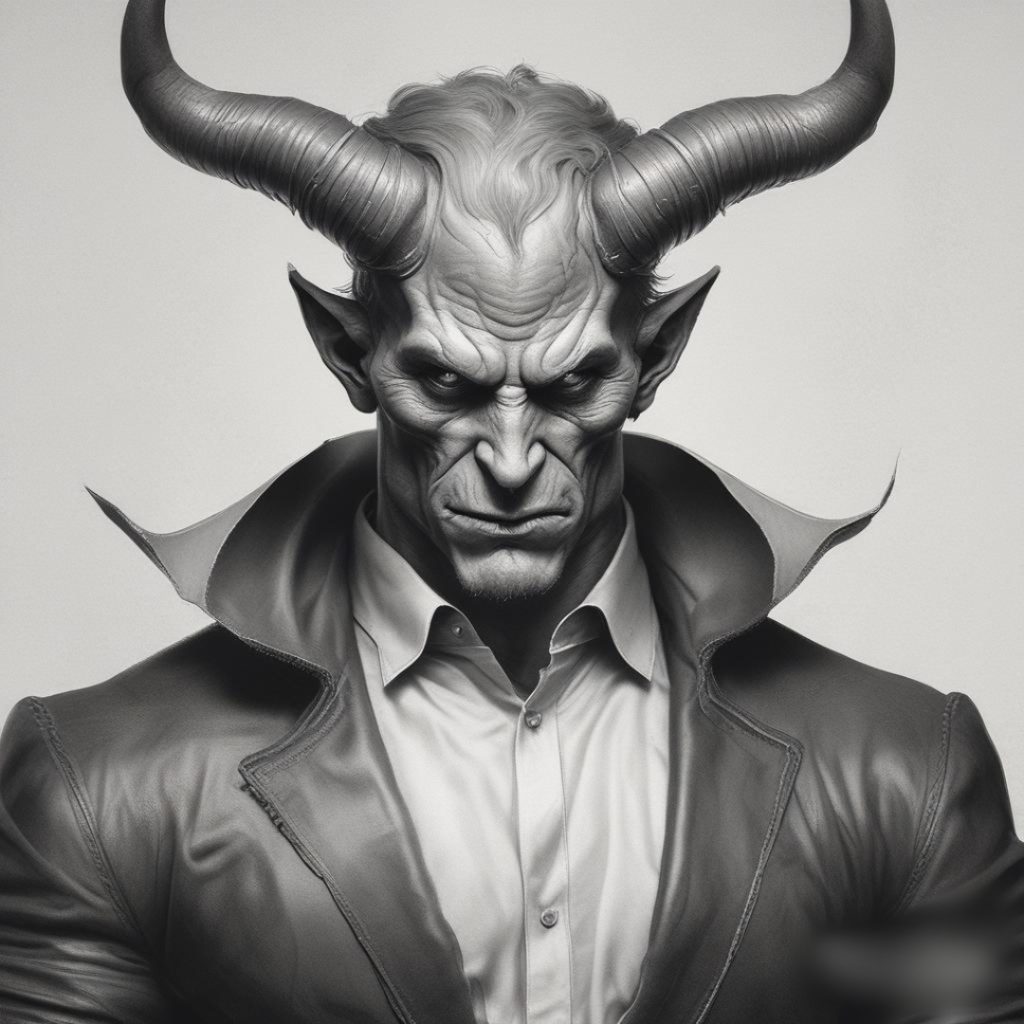The notion that the devil himself is often portrayed as an introvert can be quite intriguing. At first glance, this might sound unusual, but upon deeper reflection, it makes sense. Introverts are typically characterized by their thoughtful nature and their tendency to observe before acting. This measured approach can be likened to the cunning and strategic mindset often attributed to the devil in various cultural narratives.
In many stories, the devil is depicted as a masterful manipulator, one who understands the human psyche and can navigate complex social dynamics with ease. This aligns with the introvert’s ability to listen, analyze, and respond in ways that are often unexpected. Introverts may choose their words carefully, weighing the impact of their contributions, much like how the devil is portrayed as calculating and deliberate in his actions.
Moreover, introverts thrive in quieter, solitary environments—places where they can think deeply and devise intricate plans. This can mirror the traditional portrayal of the devil lurking in the shadows, plotting and scheming without drawing attention to himself. The stillness associated with introversion adds a level of mystery and intensity that is often attributed to the devil’s character.
In essence, the idea that the devil embodies introverted traits highlights a fascinating paradox. While introverts are often seen as gentle and reserved, they can also harbor a depth of strength and complexity that, when harnessed, can lead to profound influence or even deception. This duality is what makes the concept so compelling, reminding us that there is often more beneath the surface than meets the eye. So, the next time you think of the devil as the ultimate introvert, consider the layers of depth and strategy that this characterization reveals.
The Archetype of the Introverted Devil
The archetype of the devil as an introvert can also be examined through the lens of various literary and artistic representations throughout history. Characters like Milton’s Lucifer in Paradise Lost, for instance, illustrate this quiet intensity. Instead of being flamboyant and overtly aggressive, he is portrayed as contemplative and persuasive, luring Eve with carefully chosen words. This highlights the introvert’s strength in subtlety, where power lies not in blatant displays of force, but rather in the skill of suggestion and influence.
Shadows of Influence
The quiet demeanor of the devil allows him to remain inconspicuous while wielding significant influence. Just as many introverts often prefer to operate in the background, contributing ideas and insights without seeking the spotlight, the devil epitomizes this secretive presence. He embodies the notion that some of the most powerful interactions occur outside of the limelight. Through understanding people’s motivations, weaknesses, and desires, the introverted devil can manipulate situations to his advantage without being detected.
The Power of Reflection
Introverts are renowned for their ability to reflect deeply. This trait can be a double-edged sword. While it allows for profound insights and creativity, it can also lead to darker contemplations. This internal struggle resonates with the devil’s character, which often involves a constant push and pull between temptation and morality. The devil represents the part of us that grapples with our deeper instincts, desires, and the moral dilemmas we face. In that sense, he reflects the shadows within the introvert—their fears, their struggles with self-doubt, and their grappling with identity.
Cunning Observation and Manipulation
The act of observation is paramount to the introverted experience. They are often keenly aware of their surroundings, reading the subtle cues of emotions and behaviour in others. This observational skill closely aligns with the devil’s often-described ability to exploit vulnerabilities and manipulate situations to his favour. He is the cornerstone of the adage, “knowledge is power.” In this respect, the introverted nature can mirror his strategic cunning, illustrating that those who choose to observe rather than participate may find themselves at an advantage.
Transcending the Stereotype
It’s important to note that while the dark portrayal of introversion can be compelling, it should not overshadow the positive attributes inherent in introverted individuals. The devil’s character serves as a vehicle to explore the complexities of introversion without reducing it to a mere stereotype of deceit and manipulation. Instead, it opens up discussions about the breadth of inner lives that introverts possess, showcasing how their traits can be both constructive and destructive.
The Dual Nature of Introversion
The dual nature of introversion presented in the character of the devil reflects broader human realities. Anyone, introverted or extroverted, can experience a spectrum of emotions and tendencies. The devil’s portrayal showcases the fine line between creativity and chaos, vulnerability and strength, compassion and manipulation. Introverts can harness their introspective qualities to create art, nurture relationships, or innovate in various fields. Simultaneously, they may confront darker feelings such as isolation, anxiety, or resentment.
Lessons in Balance
The essence of viewing the devil as an introvert also teaches us lessons in balance. Just as introverts can thrive in their solitude, they must also remember the value of connection and community. The devil serves as a reminder that unchecked thoughts and manipulative tendencies can lead to isolation and despair. The introspective journey encourages introverts to maintain awareness of their feelings and motivations, ultimately striving for emotional honesty and openness.
A Call for Understanding
Embracing the concept of the devil as an introvert can foster greater understanding of the quiet strength that lies within every introverted individual. Acknowledging the complexities of their internal worlds helps reduce stigma and encourages a more compassionate perspective. Introverts are not merely brooding figures but multifaceted people with unique insights and potential for great empathy.
In conclusion, the portrayal of the devil as an introvert provides a rich tapestry through which we can examine the intricacies of human nature. It invites us to reflect on our own behaviours, motivations, and the darker corners of our psyche. Seeing the intertwining of introversion with themes of influence, observation, reflection, and duality, opens the door to deeper appreciation and understanding of ourselves and those around us. The next time we consider the devil, let us recognize the shadows he casts and the lessons that can illuminate our own paths toward balance, authenticity, and connection. Remember, in everything, balance is vital.
What are your thoughts on this fascinating portrayal of introversion? I’d love to hear what you think! 🌟


